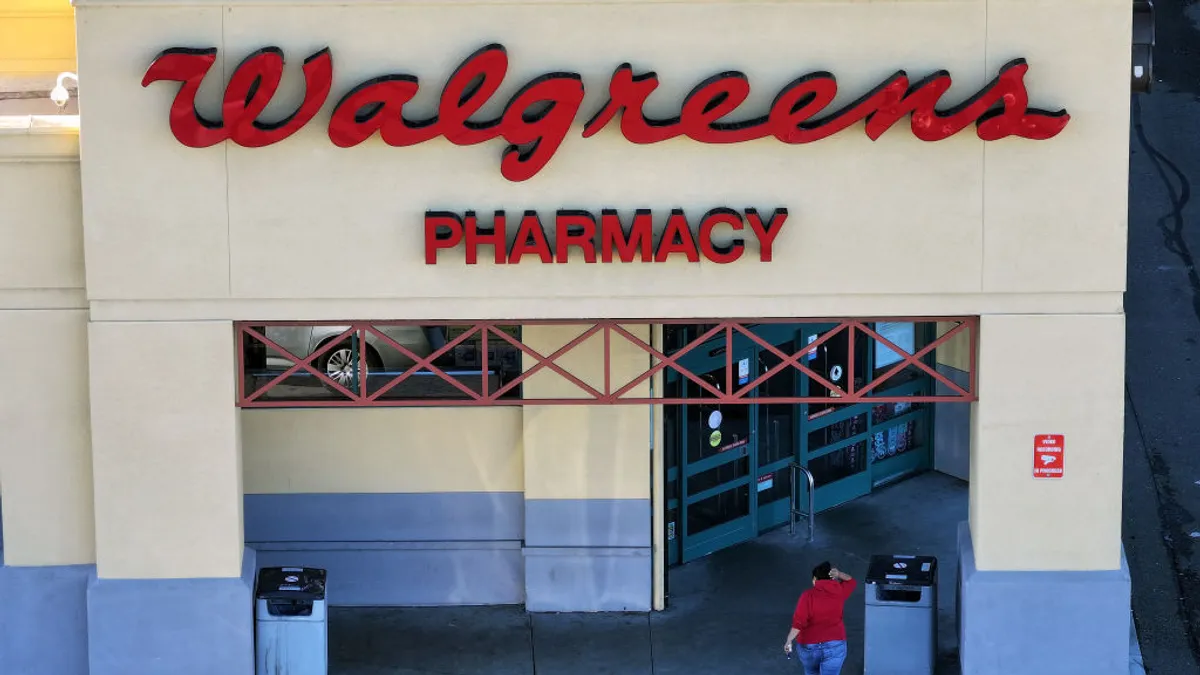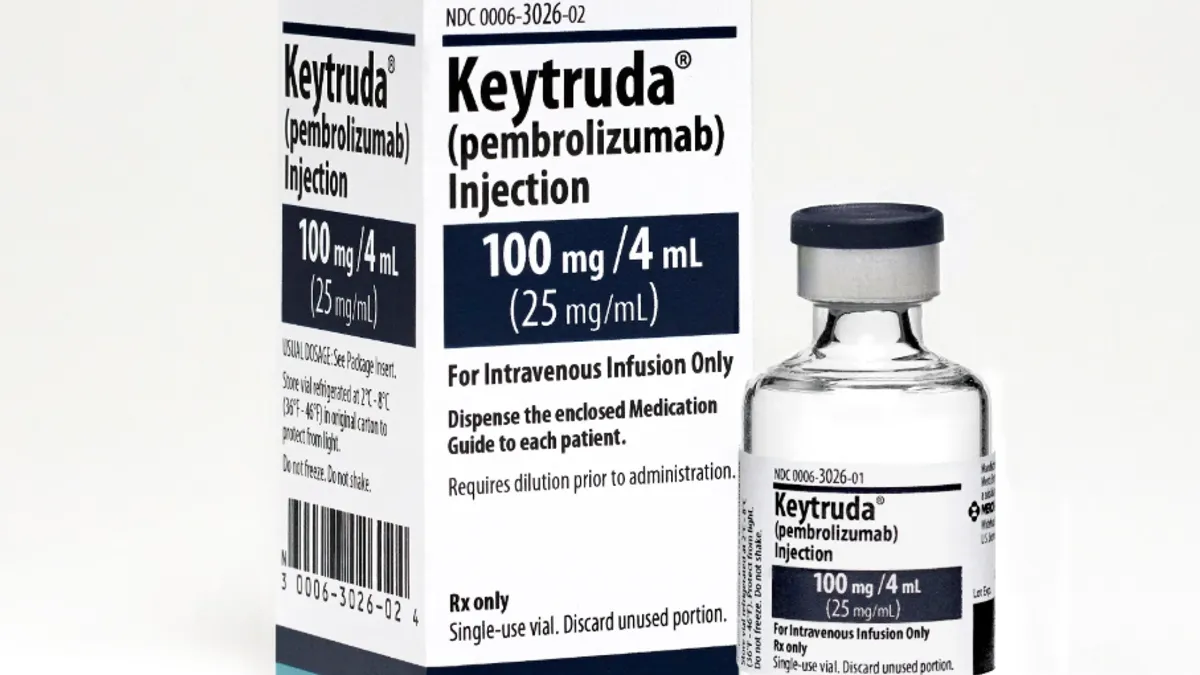Automating Medicinal Chemistry Through Building Blocks
 Martin Burke, M.D., Ph.D., and Mark Goldsmith, M.D., Ph.D., founded Revolution Medicines, which has an automated chemical synthesis platform that can be used to produce a broad range of molecules.
Martin Burke, M.D., Ph.D., and Mark Goldsmith, M.D., Ph.D., founded Revolution Medicines, which has an automated chemical synthesis platform that can be used to produce a broad range of molecules.
Through the years of trial and error, researchers have used nature as the starting point to optimize molecules, which eventually have become pharmaceutical drugs. In fact, more than half of drugs approved today are natural products or derived from them.
But making drugs out of natural compounds requires a time-consuming process to tailor the natural product into a human drug. Making natural-based molecules has historically been a highly customized effort. Each target is viewed as a unique challenge that requires individualized chemistry. This, however, is a slow process. Furthermore, understanding the  function of natural molecules is hindered by the major bottlenecks involved in making them.
function of natural molecules is hindered by the major bottlenecks involved in making them.
But now, chemists at the University of Illinois have created an automated synthesis platform that simplifies the complex chemistry process to produce a broad range of molecules, including those containing diverse types of chemical bonds. This technology has been licensed to a new company, Revolution Medicines, which was launched in February 2015. The automated process has the potential to greatly speed up and enable new drug development of small molecules.
The technology uses a chemical building-block approach for synthesizing multiple classes of complex natural chemicals that could provide a valuable backbone for new medicines. Technology pre-encodes all the information that is required to assemble the target small molecule into building blocks. The blocks have two sites of attachment that allow them to link together — a process similar to an assembly line — one after the other in a precisely controlled manner that is fully automated. The chemical building blocks all have the same connector piece and can be stitched together with one simple reaction, the way that a child’s interconnecting plastic blocks can have different shapes but all snap together.
“It’s a step toward what I ultimately hope will provide broadly accessible, on-demand small molecule synthesis," says the company’s scientific founder and scientific advisory board chairman, Martin Burke, M.D., Ph.D., who is also a professor of chemistry at the University of Illinois at Urbana-Champaign. “The technology has immediate implications for drug discovery."
Revolution Medicines calls the technology RevBlocks, and a core function/goal of the company is to develop the process to bring it to an industrial scale and a level of robustness and throughput that can support an active drug discovery program, says Mark Goldsmith, M.D., Ph.D., president and CEO of Revolution Medicines.
 The RevBlocks platform will enable the company to produce a pipeline of drug candidates with properties based on the complex structures found in natural products. The company’s first drug candidates, also licensed from the University of Illinois, leverage and improve upon the biological activity of amphotericin B, a broad-spectrum antifungal compound found in nature that is used to treat patients with life-threatening fungal infections.
The RevBlocks platform will enable the company to produce a pipeline of drug candidates with properties based on the complex structures found in natural products. The company’s first drug candidates, also licensed from the University of Illinois, leverage and improve upon the biological activity of amphotericin B, a broad-spectrum antifungal compound found in nature that is used to treat patients with life-threatening fungal infections.
“Fungi still represent an important human threat, and the drugs that are available to treat those infections are inadequate," Dr. Goldsmith says. “We are interested in delivering new medicines that would effectively eliminate fungal infections and are safe to take. We’re basing our initial work on a program that also came from Dr. Burke’s laboratory. This is a program that is focused on novel antifungal candidates that were initially enabled by the chemistry synthesize platform RevBlocks. In the coming months and years, we will be expanding that product development work to other drug candidates for important serious medical conditions."
Dr. Burke says it wasn’t immediately obvious that the building block-based approach would be applicable to natural products.
“But we are now very excited about the possibility of a simpler, more general building block-based approach, largely driven by our recognition that nature makes most small molecules using very simple chemistry and a very small number of building blocks," he says.
Dr. Burke adds that he and his team looked at all natural products that have been isolated — about 300,000 — to see if there were similarities in the chemical subunits. They found that 12 chemical building blocks make up about 75% of all natural polyene compounds.
“This was an exciting discovery because it revealed that we could create a reasonable number of building blocks from most nature products," he says. “Revolution Medicines is taking this approach to a whole new level with the RevBlocks platform so we can systemize and industrialize that building block-based approach to drive frontier medicinal chemistry."
Revolution Medicines is now investing in second- and third-generation automation that will take the process to a highly robust industrialized operation that can be applied to drug discovery.
Dr. Goldsmith says in the near term, the RevBlocks platform will be important for helping the company create chemical diversity, changing an existing molecule to create many variations of that molecule in order to identify new molecules that would have improved properties.
In addition to the RevBlocks system for enabling advanced medicinal chemistry on complex compounds, the company is developing its Reveal informatics platform to draw structural and functional lessons from evolution to enrich for preferred natural scaffolds as chemical leads against disease targets.
“As we invest in the improvement of the technology and its robustness and scale, including instrumentation, it’s certainly possible we will find other applications further down the value chain for drug development," Dr. Goldsmith says.
Editor’s Note: To view Dr. Burke’s YouTube video Making Medicine with Chemical Building Blocks, please go to: https://www.youtube.com/watch?v=FkIOpDJ5XUc


















